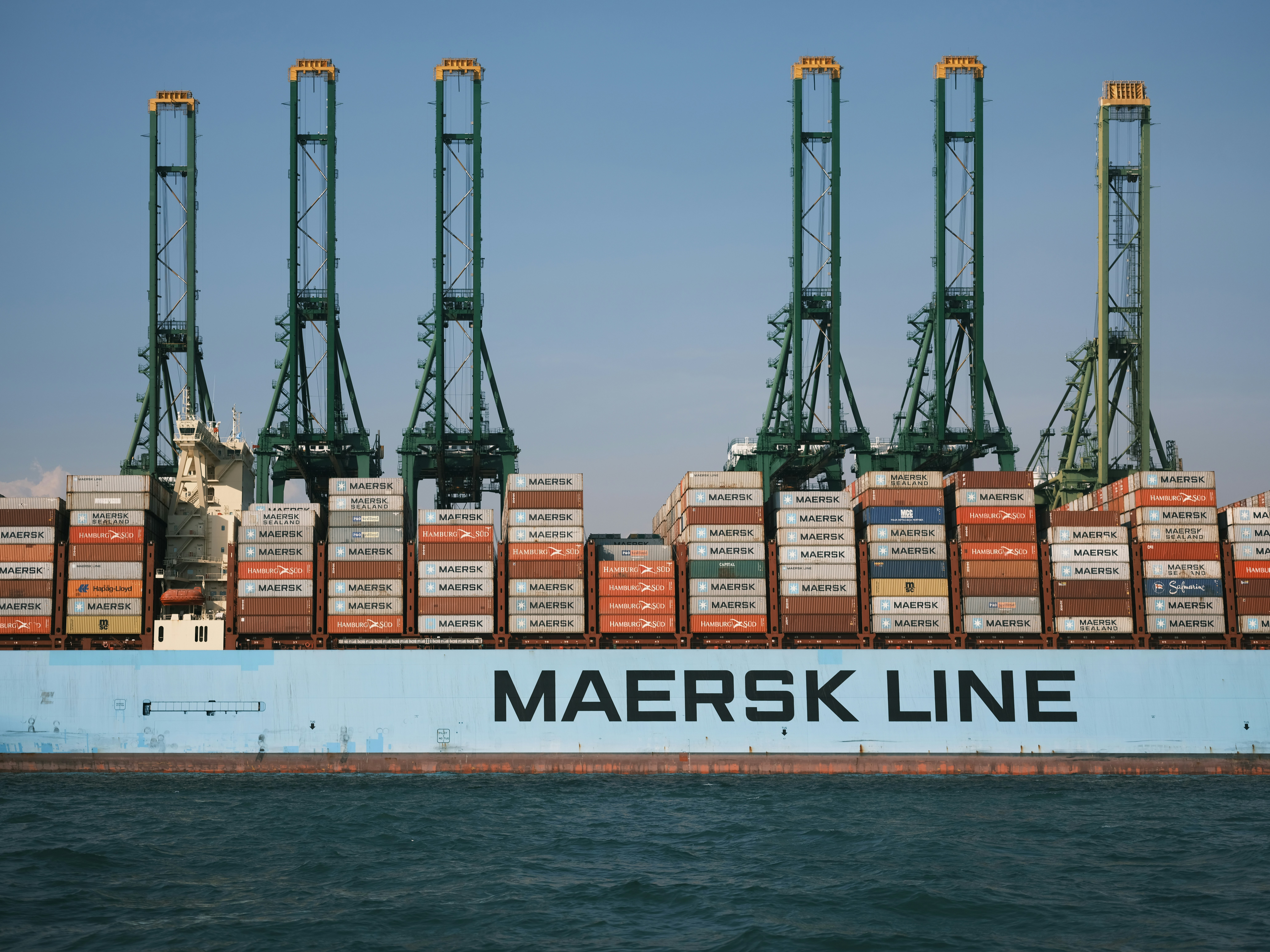A Step Backwards: Say No to LNG Responds to Maersk’s LNG Investment
The Say No to LNG global shipping campaign is deeply concerned by Maersk’s recent decision to invest in Liquified Natural Gas (LNG)-powered vessels. This move directly contradicts Maersk’s previous commitments to prioritize zero-emission fuels.

The Say No to LNG global shipping campaign is deeply concerned by Maersk’s recent decision to invest in Liquified Natural Gas (LNG)-powered vessels. This move directly contradicts Maersk’s previous commitments to prioritize zero-emission fuels.
In 2020, Maersk CEO Søren Skou said no to LNG and: “We don’t believe that LNG will play a big role for us as a transition fuel, because it is still a fossil fuel and we would rather go from what we do today straight to a neutral type of fuel.”
This recent investment represents an obvious detour from climate leadership and towards short-term financial gains at the expense of people and the climate.
Maersk’s justification for this investment, citing slower-than-expected production of green methanol and uncertainty surrounding carbon pricing, reveals a concerning lack of commitment to its own sustainability goals. The company’s challenges in China with green methanol production, including ‘overpromising suppliers’ and ‘technology difficulties’, underscore the need for stronger leadership, investment in real sustainable solutions, and a focus on efficiency, rather than a retreat to fossil fuels.
Maersk’s LNG Investment: A Dangerous Distraction
- Life-cycle emissions: LNG is not a ‘bridge fuel’. It is a fossil fuel with significant life-cycle methane emissions, a greenhouse gas far more potent than carbon dioxide. Maersk’s focus on short-term production challenges with green methanol overlooks the larger, catastrophic climate impact of LNG, which disproportionately affects Small Island Developing States (SIDS), Least Developed Countries (LDCs), and Indigenous Peoples who are on the front lines of climate change.
- Undermining zero-emissions regulations: Maersk’s concerns about the IMO’s upcoming regulations are misleading – there is a clear global consensus on the need for rapid shipping decarbonization. Maersk’s suggestion that regulatory uncertainty justifies the use of LNG ignores the evidence-based imperative for immediate action and contributes to fossil fuel lock-in.
- False sense of progress: Maersk’s assertion that methanol remains a ‘key future bunker fuel’ while investing in LNG creates an untrue narrative of progress. This not only undermines the urgency of transitioning away from fossil fuels entirely but also perpetuates environmental injustice by ignoring the disproportionate impacts of LNG on vulnerable communities.
- Creating stranded assets: Investing in LNG infrastructure diverts resources from developing and scaling up truly zero-emissions fuels (and solutions beyond fuels). Research by the UCL Energy Institute also shows that investing in LNG-powered vessels could result in significant financial losses. These vessels risk becoming stranded assets, worth little more than scrap value, by the end of this decade.
- Lack of transparency: In 2023, Maersk’s collaboration with CMA CGM, a major proponent of LNG, raised questions about the sincerity of their joint commitment to decarbonization. The lack of transparency around Maersk’s strategy to reduce methane slip and the types of engines being used in their LNG vessels also casts doubts on the company’s true dedication to a zero-emissions future.
The Need for Accountability and Just Solutions
Say No to LNG calls on Maersk to reassert its climate leadership and social responsibility by:
- Honoring past commitments: Immediately halt all investments in new LNG-powered vessels and infrastructure. Redirect these investments towards accelerating the development and deployment of zero-emission vessels and fuels.
- Investing in just and equitable solutions: Prioritize investments in technologies and infrastructure that support a just and equitable transition to zero-emissions shipping.
- Addressing production challenges: Actively explore and implement solutions, such as investing in energy efficiency measures, optimizing supply chains, and collaborating with partners to accelerate green methanol production.
- Transparent reporting: Publicly disclose detailed progress towards decarbonization goals, including specific timelines for phasing out fossil fuels, investments in zero-emission technologies, and strategies for mitigating social and environmental impacts.
The shipping industry’s decarbonization efforts require a commitment to real, equitable solutions, not false promises or risky gambles. Maersk’s actions highlight the need for greater industry accountability and a renewed focus on achieving a truly sustainable future that leaves no one behind.
Say No to LNG will continue to advocate for a just and equitable transition to zero-emission shipping. We urge Maersk and other industry leaders to join us in this critical effort.
##
About Say No to LNG:
The Say No to LNG global shipping campaign is a coalition of environmental organizations, scientists, and community groups working to expose the dangers of LNG and advocate for a just and equitable transition to zero-emissions shipping. We will be launching a global pledge in Fall 2024, which will further define industry standards for true shipping decarbonization.
Media Contact:
Rachel Wang / Communications, Say No to LNG / [email protected]